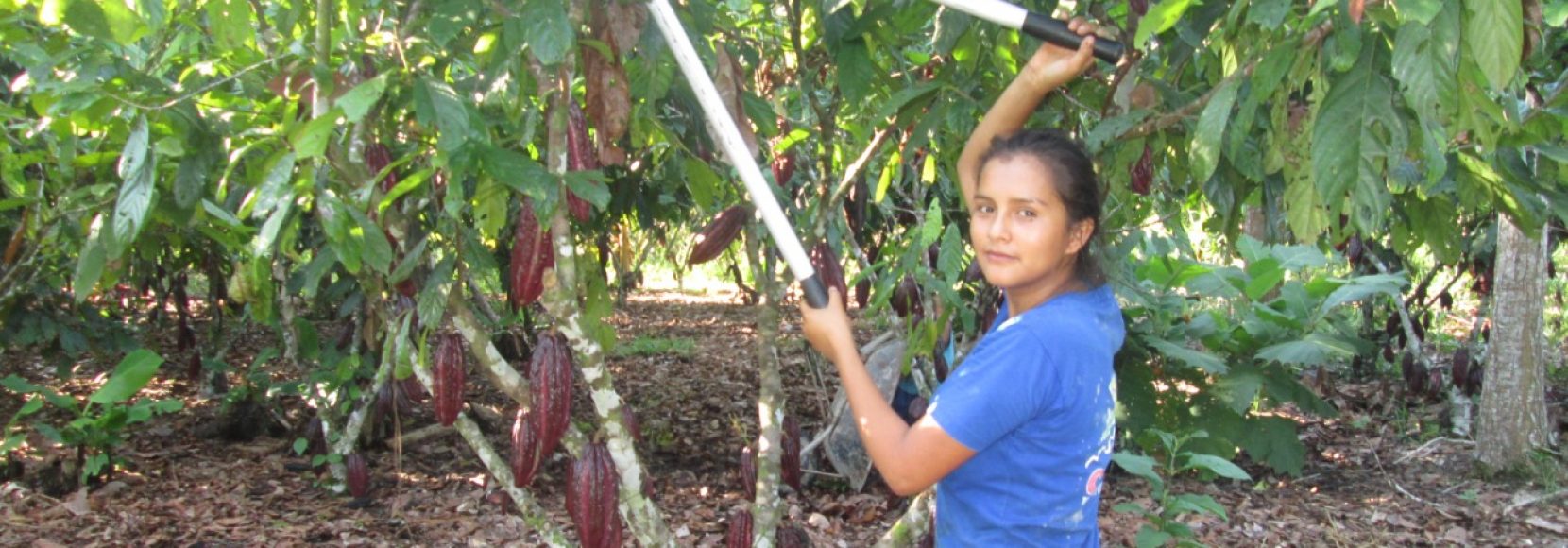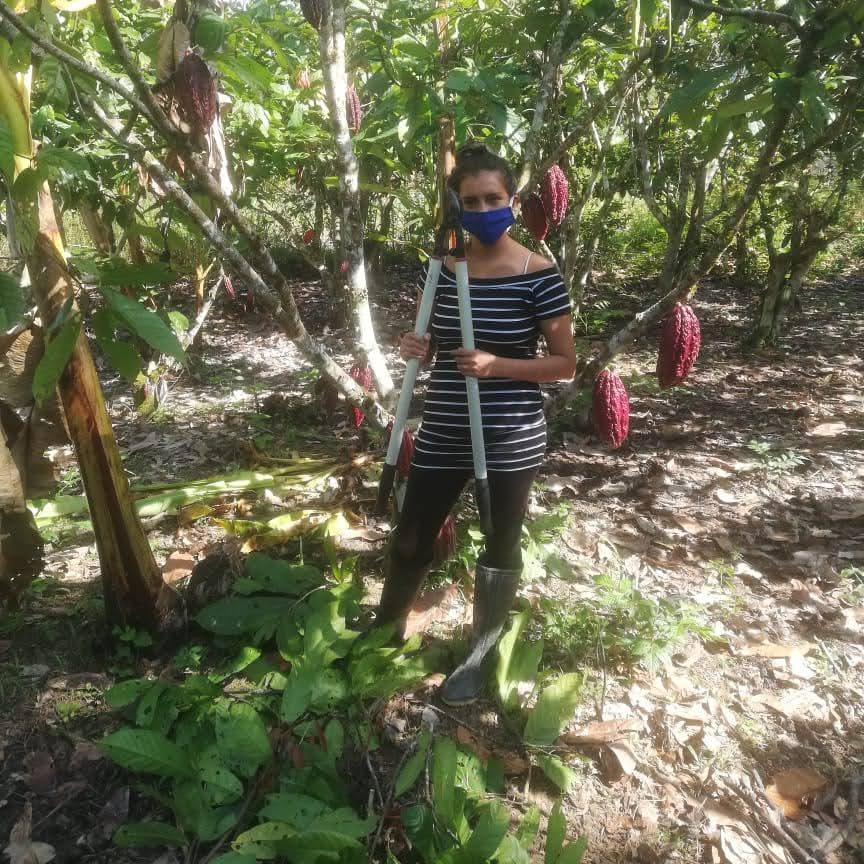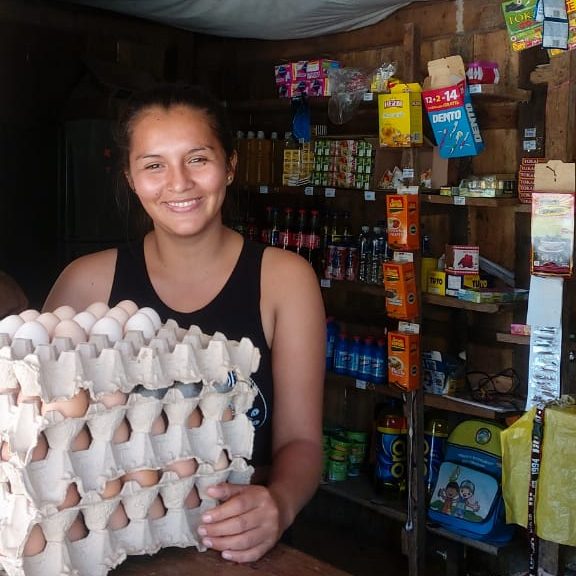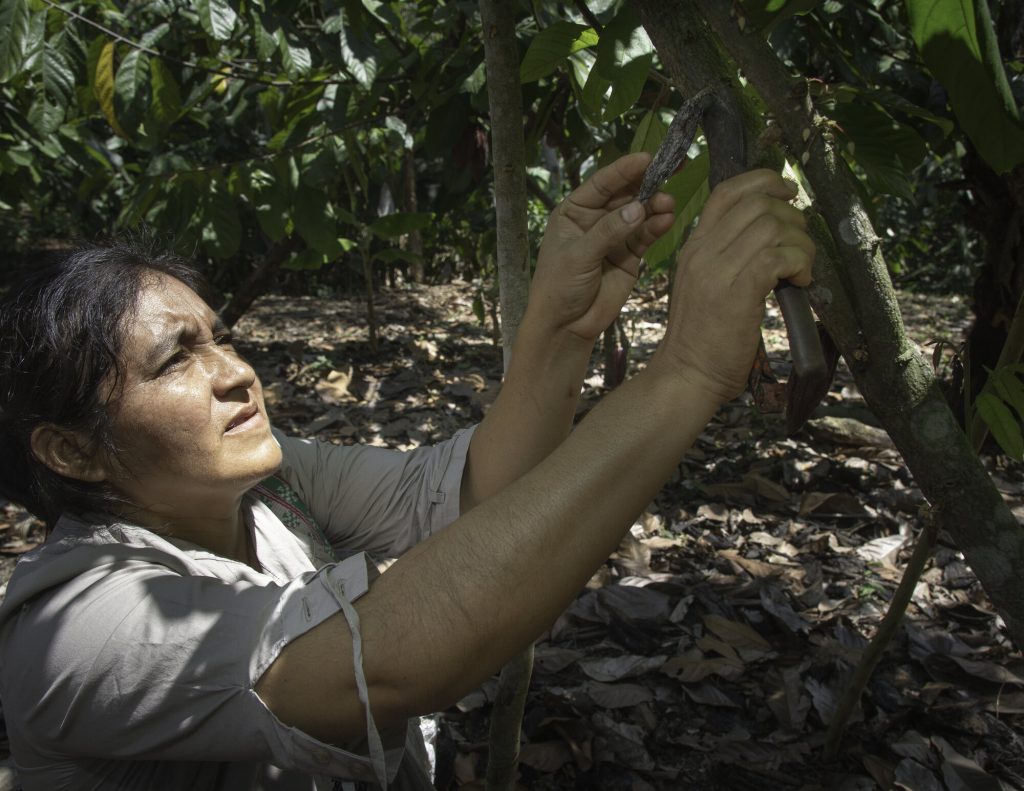
A Woman Farmer and Single Mother Empowers Her Family, Her Community, and Herself
Dara Obispo first started working with TechnoServe as a teenage single mother in 2020. Here's an update on how she's doing today.
This blog post is an update to an article that was originally published February 11, 2020.
“Even if I don’t have much, I want to give him that. So he can do something with his life. I want him to remember that his mom set him on the right path.”

These were the words of Dara Obispo, a woman farmer and single mother living in the Amazon basin of Peru. At the time, she was 19 years old and recovering from losing her own mother after becoming one herself at 16.
While Dara has been fortunate enough to have the occasional support of her grandparents, she dreamed of a better future for her son and herself. So she decided to take over the family’s abandoned cacao farm as a way to provide for her family.
How Women Domestic Violence Survivors Built New Futures
In September 2017, TechnoServe partnered with The West Foundation and started working with 90 women who grow cacao in Peru and had experienced domestic violence. Determined to build a more secure life for their families, they were now struggling to take care of their children on their own.
But their cacao farms held the promise of better days ahead. Working with TechnoServe, the women learned better farming techniques, financial literacy, and other skills. With improved cacao quality and yields, they were able to sell directly to cooperatives and direct exporters.
Today, 40 of these women hold representative authority positions in their communities, such as lieutenant governor, municipal agent, local secretary, or local treasurer. Some women are also members of community boards, with small but representative positions in their communities.
How Dara Obispo is Doing Today

Dara began working with TechnoServe in 2018 and has worked hard to apply what she has learned since then. Before she began improving her farming and business skills, she said she would harvest between 66 to 88 pounds of cacao per acre.
Today, her farm produces over 1,300 pounds per acre–an increase of between 15 and 19 times as much cacao as she used to harvest.
Thanks to this increased production, she no longer relies solely on cocoa production to make a living. She saved her money and was able to start a small enterprise – a grocery store providing basic necessities to her community.
“In the future, I want to expand my cocoa farm to at least eight acres and have my fermentation and drying modules to improve the quality of my final bean,” she says today. “At the same time, I want to grow my grocery store and provide a better future for my son.”
Challenges to Women Farmers in Peru
Dara’s only son, Brandon, is now five years old. He’s in kindergarten and is very creative as he loves to draw and paint. Dara shared that he’s also very good at sports.
Brandon isn’t the only one in the family who has time to enjoy other activities. “Before, my life was only to work on my farm and dedicate myself to my son,” says Dara. “Today, thanks to the improvement of my income, I can dedicate a little time for myself and carry out activities that I like and had stopped before due to lack of time.”
As a woman farmer and single mother, Dara faced greater challenges than a man. Women farmers in Peru usually have smaller plots than men, for instance.

And like women around the world, she has had to grapple with systemic barriers to earning a good income. “We do not live in a world of equality,” she acknowledges. But seeing her own skills and cacao production grow has given her new hope. “However, women should not give up, because with hard work and perseverance, we can achieve all our dreams.”





